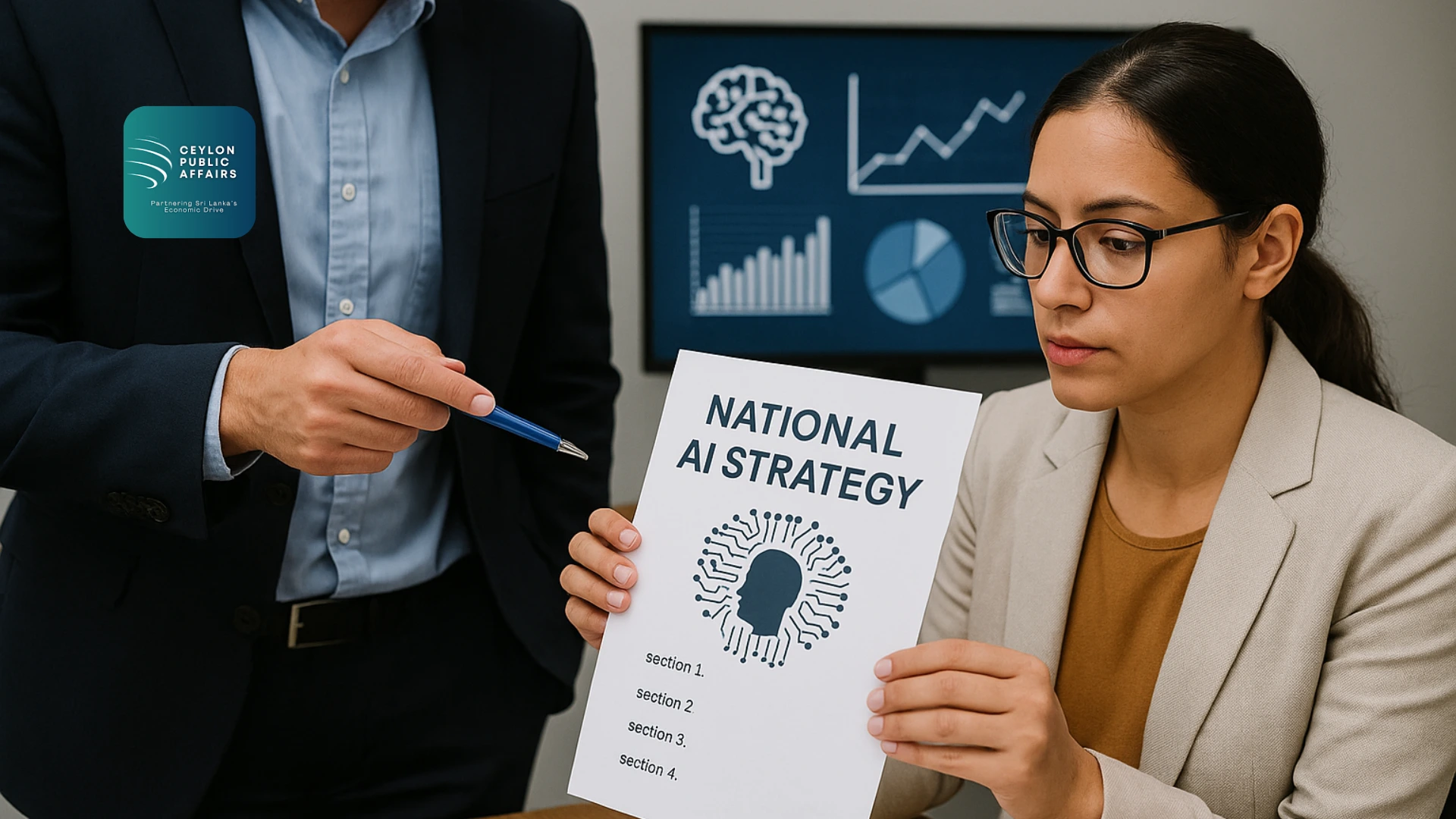AI and Policy in Sri Lanka | AI or Artificial Intelligence, has become the buzzword of the decade. From voice assistants on smartphones to complex algorithms that power global financial markets, AI is shaping the way the world works. For Sri Lanka, a nation balancing economic recovery with ambitions of becoming a modern hub in South Asia, the rise of AI poses a crucial question: will we prepare for this transformation, or be left behind?
What Exactly Is AI?
At its core, AI refers to machines or software that can “learn” from data and make decisions, often faster and more accurately than humans. Think of online banking systems that flag suspicious transactions, chatbots that answer customer queries, or weather models that predict storms. These are all powered by AI. The technology is not science fiction anymore, it is already here.
Why Should Policymakers Care?
AI is more than a technological trend. It is a tool that can solve some of Sri Lanka’s most pressing challenges:
- Healthcare: AI can assist doctors by analysing medical scans quickly, helping with early detection of diseases such as cancer.
- Agriculture: With AI-powered data, farmers could predict rainfall patterns, monitor soil health, and improve yields.
- Education: AI tutors and personalised learning systems could help students in rural areas get access to the same quality of learning as those in Colombo.
- Public Services: AI can make government processes faster, cutting down on paperwork and queues.
When used responsibly, AI could make governance more efficient and improve the quality of life for citizens.
Where We Stand Now in AI and Policy
At present, Sri Lanka does not have a national AI policy. Private companies in finance, telecoms, and IT services are experimenting with AI in small ways. But there is no coordinated framework that brings together government, business, and academia to guide the country’s approach. This creates risks: adoption will remain patchy, benefits will not reach everyone, and ethical questions will go unanswered.
Learning from the World
Other countries have already taken the leap:
- India has developed a National AI Strategy, focusing on healthcare, agriculture, and education.
- Singapore has introduced an AI governance model that ensures accountability and fairness in how AI is used.
- The European Union is finalising laws that regulate “high-risk” AI systems, such as those involving surveillance or critical infrastructure.
These examples show that smart policies are just as important as the technology itself. Without them, AI can widen inequalities or be misused.
The Key Issues for Sri Lanka
If Sri Lanka wants to harness AI, policymakers must tackle several questions head-on:
- Data Privacy: Who owns citizens’ data, and how is it protected? Without strong privacy laws, people may lose trust in digital systems.
- Ethics and Bias: AI systems learn from data, but if that data carries human biases, the results will be unfair. Imagine a recruitment system that disadvantages certain communities because of flawed training data.
- Skills and Education: Does our workforce have the training to adapt to an AI-powered economy? Are schools preparing students for jobs that will look very different in 10 years?
- Public-Private Collaboration: Can government, universities, and tech firms work together rather than in silos?
What a National AI Policy Could Look Like
A strong AI policy should address both opportunities and risks. Some starting points could be:
- A National AI Roadmap: A clear document outlining Sri Lanka’s AI goals, sector priorities, and investment strategies.
- Pilot Projects in Key Sectors: Start with agriculture, healthcare, and education where AI can have the biggest impact.
- AI Ethics Guidelines: Ensure systems are transparent, accountable, and fair.
- AI in Public Services: Introduce AI to speed up government services, from tax processing to social welfare distribution.
- Capacity Building: Scholarships, university courses, and training programmes to develop a skilled AI workforce.
The Risks of Doing Nothing
If Sri Lanka continues without a policy, the consequences could be severe. Wealthier nations and companies will surge ahead, leaving us as passive users of imported technologies. Local industries may struggle to keep up, and citizens could be exposed to unethical uses of AI without safeguards. In short, not having a plan is itself a plan; for dependence, not leadership.
AI as a Strategic Opportunity
Handled correctly, AI can be more than just another technology. It can become a tool for rebuilding trust in governance, positioning Sri Lanka as a modern digital economy, and attracting international partnerships. Countries that invest early in AI will define the standards, frameworks, and markets of the future.
For Sri Lanka, the opportunity is clear: act now, craft a forward-looking AI policy, and ensure that innovation serves people, not the other way around.
For more articles – https://ceylonpublicaffairs.com/













